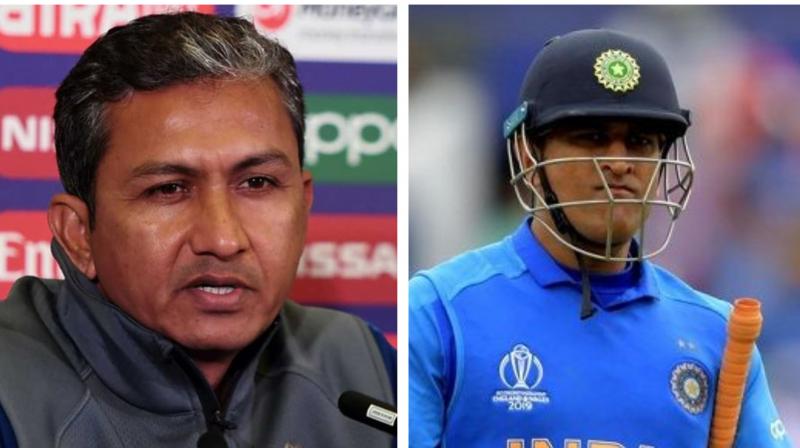Sanjay Bangar reveals \'all decisions regarding no 4 were taken by team management’
Bangar was Ravi Shastri’s support staff for five years.

Mumbai: Former Indian cricket team’s batting coach Sanjay Bangar, whose contract recently came to an end after the West Indies tour, has recently stated that during the whole 2019 World Cup campaign all decision were taken by the team management, including the decision to send Mahendra Singh Dhoni at number 7 during India’s high tension World Cup semi-final match against New Zealand.
Bangar, who was Ravi Shastri’s support for five years, has observed the growth of the national team very closely and was a main member of the team.
After the Board of Control for Cricket in India (BCCI) decided to appoint new support staff post India’s exit from the 2019 World Cup, Bangar has revealed that he felt proud to have worked with the Indian team, and now he is looking ahead for a fresh start.
In an interview, Sanjay Bangar stated, “Being disappointed was a natural feeling which lasted for a few days. This break gives me time to reflect, rethink and reinvent.”
The 46-year-old further added, “I look back at the progress the team has made since 2014 and being world number one for three years in a row with happiness,” he said. “We won 30 out of the 52 Tests we played and 13 of them were overseas. We consistently did well in the ODIs as well. The only thing that eluded us was the World Cup.”
Bangar drew heavy flak from the fans after several reports stated that it was his decision to send MS Dhoni at number seven during India's World Cup semi-final loss against New Zealand.
“The entire team management and selection committee were part of the decision making for the number four in the lead up to the World Cup,” he said. “The choice of player relied on current form, fitness test criteria, whether he could bowl, etc.”
“Virat always looks to iron out deficiencies. We worked on his alignments, positioning on the crease, his approach in seaming conditions.”
"Shikhar was initially considered to be an off-side player, he used to stay beside the line of the ball a lot. We worked on how he could get behind the line and open up scoring areas and overcome his dismissals against the short ball."
Lastly, Bangar added, “With Rohit, we constantly worked on his head position to overcome his problems against incoming deliveries from right/left arm angles. In Pujara’s case, we worked on reducing the width of his stance, and how he could be more upright. It is to their credit that they worked tirelessly to unlearn old methods and learn new ones through constant repetition.”

